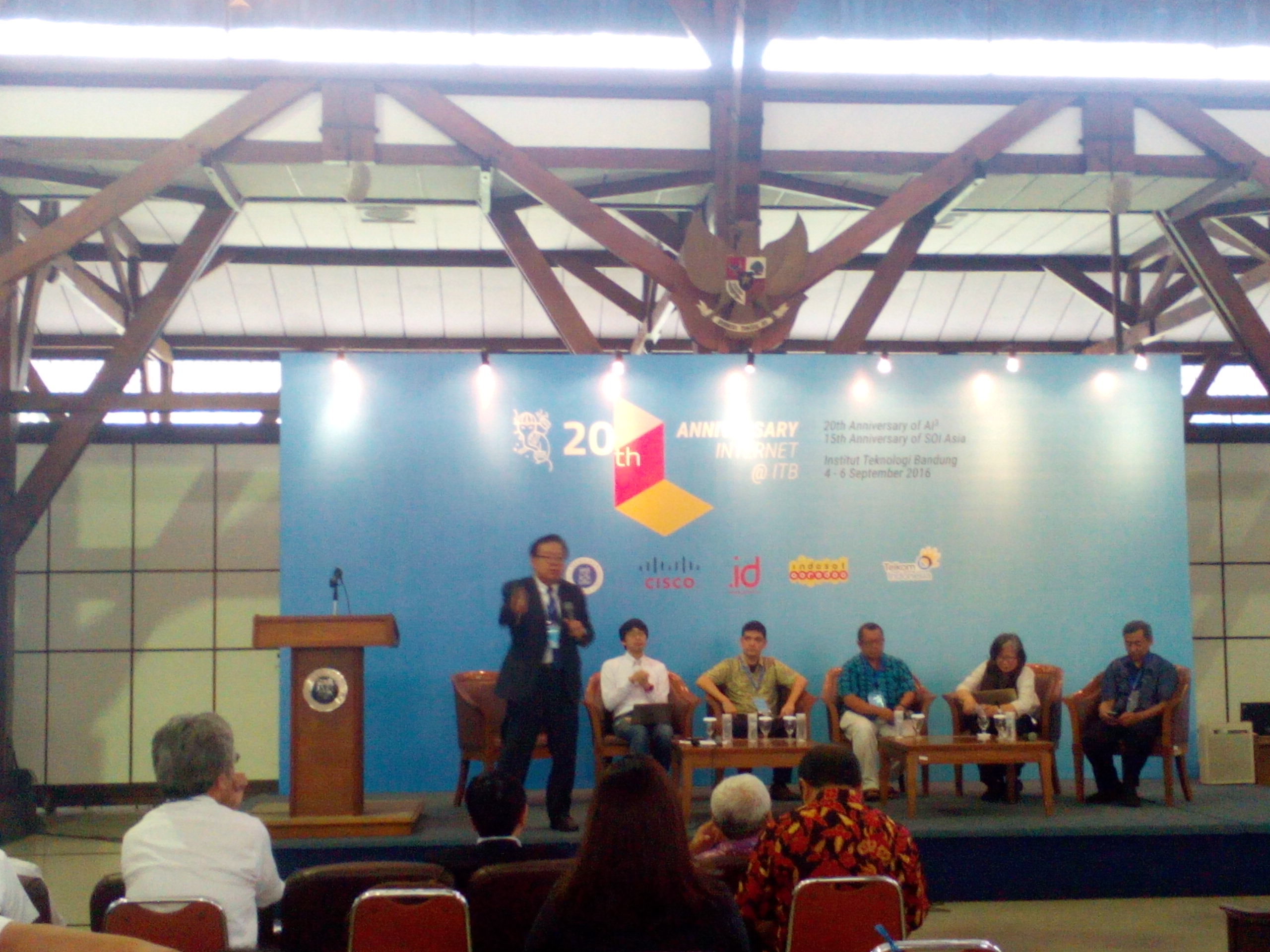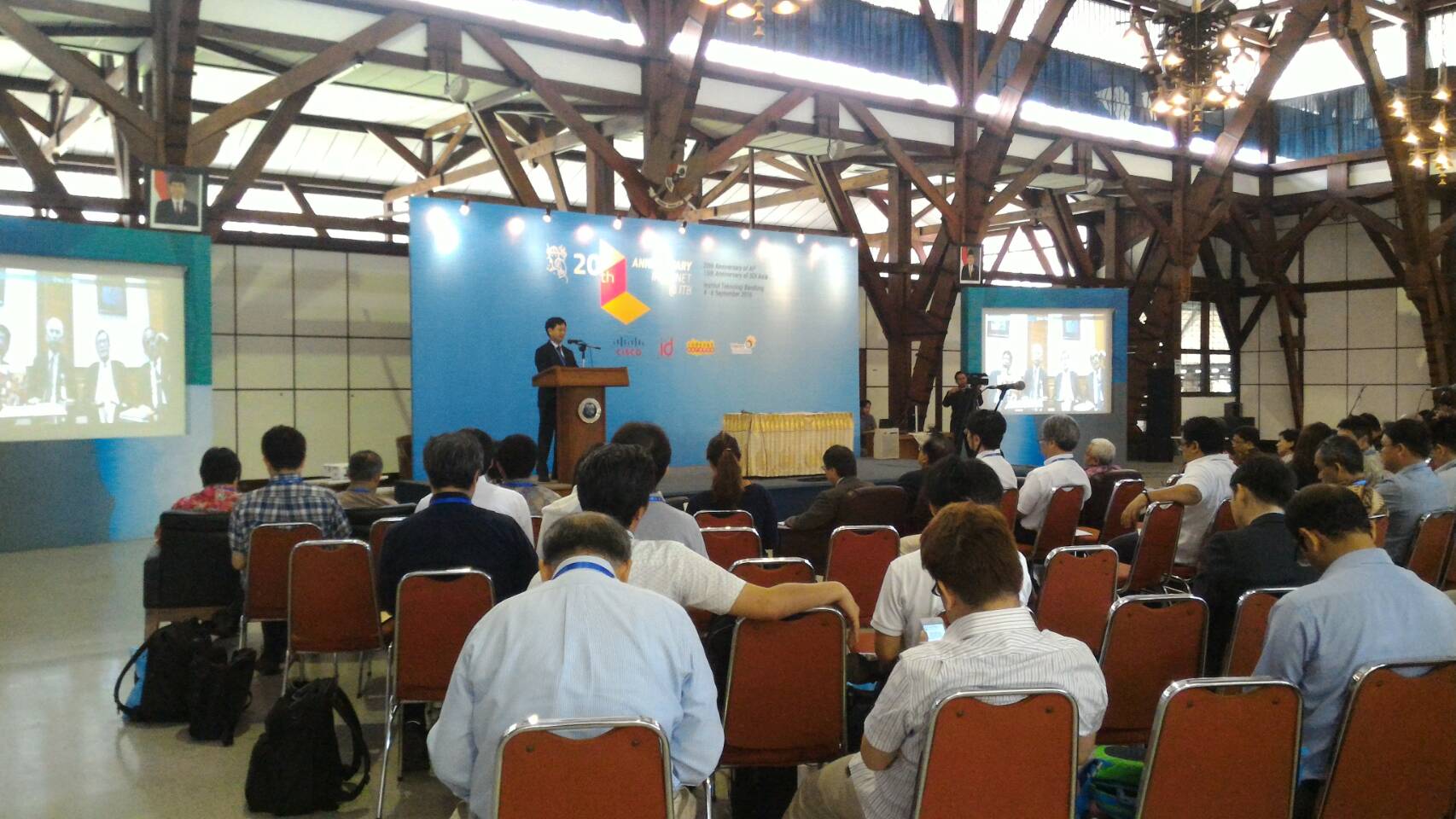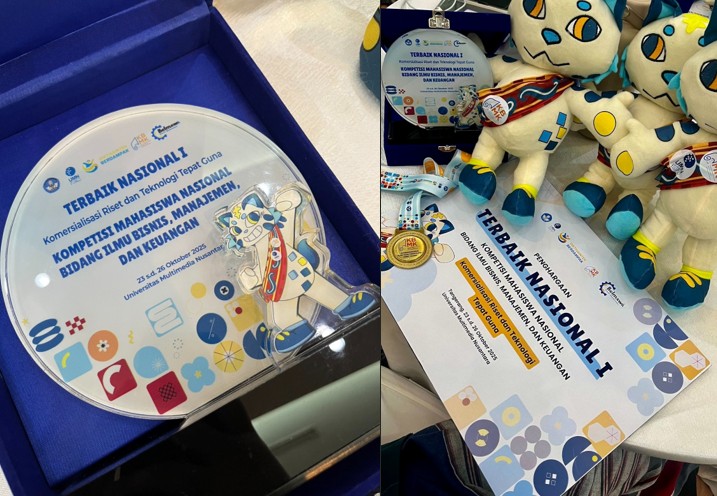Panel Discussion 20th Anniversary of AI3 ITB: The Role of Internet to Increase the Level of Education on Society
By Anin Ayu Mahmudah
Editor Anin Ayu Mahmudah

 BANDUNG, itb.ac.id - On Monday (04/09/16) ITB held an event titled "20th Anniversary of AI3" in order to commemorate the 20th anniversary of the utilization of internet in ITB. This event took place at the East Hall of ITB. The event was conducted to celebrate the growth of internet usage in ITB for 20 years. Asia Internet Interconnection Initiatives (AI3) is very familiar in ITB, especially for the students. AI3 has been a constant companion for students to access the internet at campus.
BANDUNG, itb.ac.id - On Monday (04/09/16) ITB held an event titled "20th Anniversary of AI3" in order to commemorate the 20th anniversary of the utilization of internet in ITB. This event took place at the East Hall of ITB. The event was conducted to celebrate the growth of internet usage in ITB for 20 years. Asia Internet Interconnection Initiatives (AI3) is very familiar in ITB, especially for the students. AI3 has been a constant companion for students to access the internet at campus.
The presence of AI3 certainly did not appear casually but through a long history involving many parties. On this event, one of the panel discussions entitled "The Future of Internet/REN" presented 5 panelists who were competent in the field of internet development in Asia, discussing the future of the internet for humans. Before the panel discussion began, Prof. Jun Murai as the Head of the Faculty of Environment and Information at Keio University and as Chairman of AI3 and SOI Asia delivered a topic entitled "Internet Development in Asia and the World". He explained about the condition of the needs of the internet for world citizens, especially in Asian countries. In his role of developing education, operation and networking, Prof. Jun Murai asserted at the end of his brief presentation that, "Roles of the Internet in Asia are yours, to create!"
After a brief presentation from Prof. Jun Murai, the event was followed by a panel discussion moderated by Prof. Murai himself. The five panelists attending the discussions were Dr. Kotaro Kataoka from the Indian Institute of Technology Hyderabad, Prof. Kanchana Kanchanasut from the Asian Institute of Technology, Dr. Onno W. Purbo as the co-initiator of AI3 ITB, Basuki Suhardiman as the co-initiator of AI3 ITB, and Bani Lara from Advanced Science and Technology Institute.
The Role of Internet for Asia's Atmosphere It can't be denied that the countries in Asia, both developed countries or developing countries, use internet as a basic need to communicate, to get information or just for entertainment. The panel discussion was opened by Prof. Kanchana Kanchanasut which highlighted about the development of the School On Internet (SOI) Asia Project, one of the Asian level organization that aims to contribute to the development of higher education in Asian countries to take advantage of the Internet, digital technology by optimizing resources collaboration owned by Asian countries. For example, SOI Asia has provided assistance to the University of Syah Kuala, Aceh, Indonesia through various demos and system installations in various universities in Asian countries.
It can't be denied that the countries in Asia, both developed countries or developing countries, use internet as a basic need to communicate, to get information or just for entertainment. The panel discussion was opened by Prof. Kanchana Kanchanasut which highlighted about the development of the School On Internet (SOI) Asia Project, one of the Asian level organization that aims to contribute to the development of higher education in Asian countries to take advantage of the Internet, digital technology by optimizing resources collaboration owned by Asian countries. For example, SOI Asia has provided assistance to the University of Syah Kuala, Aceh, Indonesia through various demos and system installations in various universities in Asian countries.
Through all the programs carried by SOI Asia, it is hoped that internet will be increasingly spread in various layer of society and can bring positive impact to the Asian community. The continuous effort that needs to be improved by people in charge of the development of internet technology are: (1) students and children will be ready to use the internet provided; (2) internet users will not be panicked in using internet directly; (3) internet will be more easily utilized and available everywhere; and (4) power community.
Improving Education Quality through Internet
The discussion was continued with an explanation of the historical development of the internet in ITB by Basuki Suhardiman. From the historical development of the Internet in ITB, Basuki Suhardiman concluded at the end of his presentation that, "We still need to work hard to build the internet for society."
The final session of "The Future of the Internet" panel discussion was filled by Dr. Onno W. Purbo, a notable expert in the field of information technology from Indonesia who is also an author, educator, and seminar speaker. In his presentation, he talked more about the condition of education in Indonesia, especially in remote areas. Indonesia has about 6 million students, and only 600,000 of them are able to go to college. He asserted, "We have to think different way, we have to remove the building from the education system to enable 90% of knowledge."
Therefore, he introduced "eLearning Rakyat", an IT-based system that can be accessed by anyone. There are various college lectures as well as exercises. This system can save up to 50 percent of the cost of printing exam sheets every semester. "In Papua, there was a student whom I introduced the system to. It became easier for her to get college materials and exercises, in the upcoming test she managed to obtain 71 score out of 100. You know the score she got before? 13 out of 100," Dr. Onno said. This achievement is certainly expected to be well applied everywhere so that the level of Indonesia's society education can be increased significantly.

.jpg)
.jpg)
.jpg)
.jpg)
.jpg)


